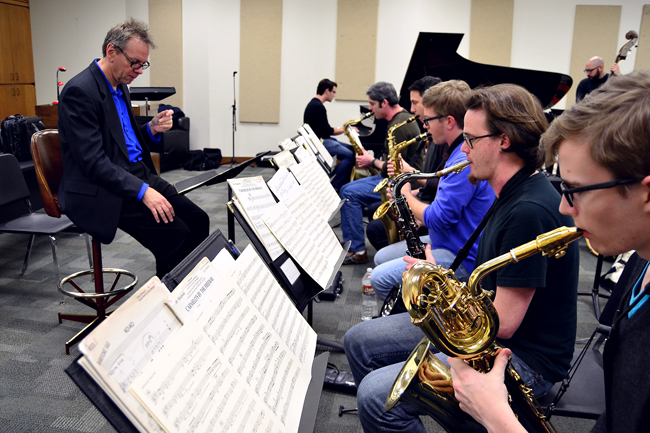Although many open-enrollment courses face high dropout rates, UT professors hope memory-management software that checks retention rates and interacts with students will make a new online class more engaging for interested students.
Massive open online courses, commonly known as MOOCs, are free online courses accessible to the public. The UT System offers MOOCs through edX, a nonprofit distributor of interactive online courses. In 2012, the UT System Board of Regents approved a $10 million investment in edX, and the System’s first four MOOCs cost upward of $150,000 each.
Though the System specifically created the Institute of Transformational Learning in 2012 with the goal of establishing UT as a leader in online education, MOOCs have also received criticism for their high dropout rates. According to data from The Texas Tribune, about 87 percent of students dropped out of System MOOC Energy 101. Other fall semester MOOCs boasted dropout rates ranging from 89 percent to 99 percent.
Leslie Hall, project manager at UT’s Center for Teaching and Learning, said memory management software Cerego adjusts review times to maximize a student’s information retention. Newly offered UT MOOC Jazz Appreciation will use Cerego technology.
“Cerego is designed to help the information truly sink in by letting students practice their knowledge and skills in short, frequent intervals,” Hall said.
Jazz professor Jeff Hellmer, an instructor for the Jazz Appreciation MOOC, said his course differs from other MOOCs because the combination of edX and Cerego allows students a more individualized experience.
“Cerego allows for a personalized approach to learning, as it tailors the repetition of items to be learned based on the individual student’s strengths and weaknesses,” Hellmer said. “It is also ideal in that in a course such as Jazz Appreciation, it eliminates the need for testing over basic facts and concepts.”
According to Hellmer, although integration with Cerego has been successful so far, he sees room for improvement in the future.
“There’s the long-term challenge of devising ways to evaluate student progress on content that requires lengthier responses,” Hellmer said.
Finance senior Joshua Sigala said he’s enrolled to take his first MOOC this March. The 10-week course, offered by Cornell University and hosted on edX, will explore issues of privacy and surveillance in an increasingly interconnected world.
“I heard a few people talking about [MOOCs] and when I googled it, I learned that these courses were free, so I thought I would give it a shot,” Sigala said. “I would like to learn more about different subjects that aren’t part of my major.”
Hall said the University currently offers eight courses through edX and is analyzing its progress with hopes to improve current courses.
“We want to learn about what helps students be successful in a MOOC environment, and what they’re getting out of it, so we can continue to improve what we offer,” Hall said.
According to Hall, education is constantly evolving with the advancements of technology. Hall said she was excited about her participation in the changing environment.
“I think the future will be more flexible and student-directed, with more options for choosing the types of courses and programs that take them where they want to go,” Hall said.





















